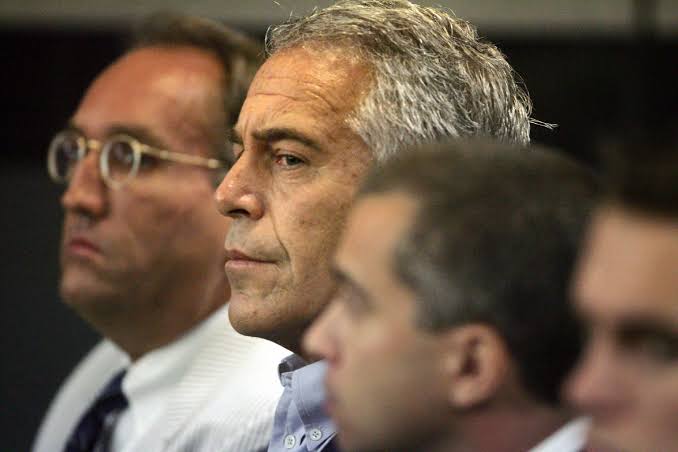New documents from the Federal Bureau of Prisons have revealed previously unreported details about disgraced financier and convicted sex offender Jeffrey Epstein’s last days.
After being arrested on federal sex trafficking charges in July 2019, Jeffrey Epstein was jailed at the Metropolitan Correctional Center (MCC) in Manhattan.
On the morning of August 10, 2019, Epstein was found dead in his cell from an apparent suicide.
The Bureau of Prisons documents, which include the suicide watch logs recorded by corrections officers and a psychological reconstruction of his death, provide insight into Epstein’s state of mind just before his death.

Although the former billionaire financier told a jail psychologist that he had a ‘wonderful life,’ notes from the documents paint a very different picture.
Epstein was placed on psychological observation after attempting to kill himself, which left him with bruises and scrapes on his neck. Metro reports.
Several corrections officers assigned to observe Epstein noted that he appeared to have trouble sleeping, complained about not being able to use his CPAP machine, and was frequently bothered by the noise inside the facility.
He also told officers that he was concerned about his safety from other prisoners, both in the general population unit and the special housing unit.

Several corrections officers noted strange behaviors. On July 26 and 27, an officer overheard him calling himself ‘a coward’ and a person who does not like pain.
Another recalled a moment he was so bothered by noise that sat in the corner of his cell covering his ears: ‘He told [redacted] the toilet in his cell would not stop flushing for an extended period of time, and he then took to sitting in the corner with his hands over his ears.’
The psychological reconstruction of Epstein’s death came to the conclusion that ‘the lack of significant interpersonal connections, a complete loss of his status in both the community and among associates, and the idea of potentially spending his life in prison were likely factors contributing to Mr Epstein’s suicide.’

They also noted that Epstein seemed alone and abandoned in prison, which may have contributed to his mental state.
‘Although Mr Epstein appeared to cultivate a large social and professional network, he was estranged from his only brother,’ the document reads.
‘Indeed, his identity appeared to be based on his wealth, power, and association with other high-profile individuals.’
On August 9, just a day before his death, records indicate that Epstein placed two mysterious phone calls that were not recorded or monitored by prison officials.
‘A lieutenant facilitated two telephone calls for Mr. Epstein,’ the document reads.
‘Its unknown when and to whom these calls were placed and no evidence that they took place on a monitored telephone.’
The document simply says he was ‘provided’ a telephone to use for the calls. Inmate calls at the MCC require a prisoner’s PIN number, which Epstein did not have. So the correctional officer placed the calls for him, dialing a number with the area code 347.

‘Mr Epstein told [redacted] he was calling his mother who, according to public records, has been deceased since 2004,’ the record states.
The documents also revealed another peculiar interaction.
Before his death, Epstein wrote and sent a letter to Larry Nassar, the former physician for the US National Gymnastics team and convicted sex offender.
Nassar is currently serving a life sentence after sexually assaulting at least 265 young women and girls associated with the team.
The letter was found returned to sender at the MCC, weeks after Epstein’s death.
‘It appeared he mailed it out and it was returned back to him,’ one investigator at the Bureau of Prisons said in an email.
‘I am not sure if I should open it or should we hand it over to anyone?’
Although the emails about the letter were released, the letter itself has not been made public.












